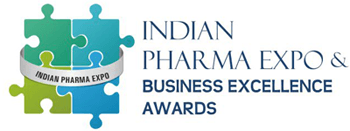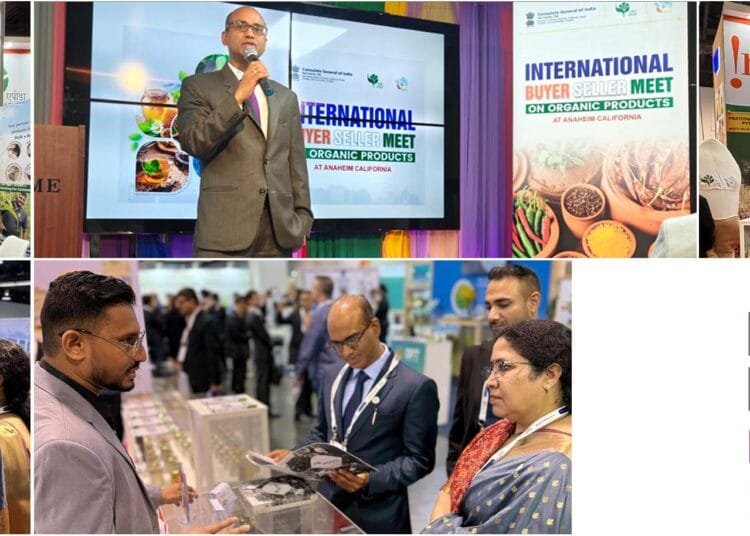Cut dependency on raw material imports
Minister for Chemicals and Fertilizers D V Sadananda Gowda has launched four schemes of the Department of Pharmaceuticals for the promotion of domestic manufacturing of bulk drugs and medical devices parks in the country.
The Government has approved four schemes, two each for Bulk Drugs and Medical Devices parks, he said, calling on the industry and the States to come forward and participate in these schemes.
India is often referred to as ‘the pharmacy of the world’ and this has been proved true especially in the ongoing Covid-19 pandemic when India continued to export critical life-saving medicines to needy countries even during the countrywide lockdown.
However, despite these achievements, it is a matter of concern that the country is critically dependent on imports for basic raw materials, viz. Bulk Drugs (Key Starting Materials (KSMs) and Drug Intermediates (DIs) and Active Pharmaceutical Ingredients (APIs)) that are used to produce some of the essential medicines.
Similarly, India imports 86% of its medical device requirements.
Production Linked Incentive (PLI) schemes for promoting domestic manufacturing of KSMs, DIs and APIs, and medical devices will go a long way including to boost domestic manufacturing of 53 bulk drugs, on which India is critically dependent on imports.
Financial incentives will be given to a maximum of 136 manufacturers selected under the scheme as a fixed percentage of their domestic sales of these 41 products manufactured locally with the required level of domestic value addition.
The incentives would be subject to annual ceilings communicated in the approval letter. The incentives would be given for a period of 6 years.
In the case of fermentation-based products, the rate of incentive is 20% for first four years, 15% for the fifth year and 5% for the sixth year.
In the case of chemically synthesised products, the rate of incentive is 10% for all six years. The selected manufacturers shall have to complete committed investment above a threshold investment mandated for each product and achieve a prescribed minimum installed capacity before they are eligible to receive incentives.
The threshold investment is Rs.400 crore for four fermentation-based products and Rs.50 crore for 10 fermentation-based products.
Similarly, threshold investment is Rs.50 crore for four chemically synthesised products, and Rs.20 crore for 23 chemically synthesised products.
The minimum installed capacity to be achieved for each of the 41 products is prescribed in the guidelines.
The incentives for fermentation-based products would be available from FY 2023-24 i.e. after a two-year gestation period during which the selected applicant has to complete the committed investment and install the committed capacity.
For chemically synthesised products the incentives would be available from FY 2022-23 i.e. after a gestation period of one year during which the selected applicant has to make the committed investment and install the committed capacity.
Any company, partnership firm, proprietorship firm or an LLP registered in India and possessing a minimum net worth (including group companies) of 30% of the proposed investment is eligible to apply for incentives under the scheme. An applicant can apply for any number of products.
The applicants will be selected on the basis of transparent composite evaluation criteria which include the annual production capacity committed by the applicant and the sale price of the product quoted by the applicant.
Applicants quoting low sale price and higher production capacity will get higher marks in the evaluation.
The guidelines are available on the website of the Department of Pharmaceuticals.
The salient features of the four schemes are:
The scheme is open for applications for a period of 120 days from the date of issuance of guidelines and the approval will be given to the selected applicants within 90 days from the closure of the application window. Applications will be received only through an online portal.
The total financial outlay of the scheme is Rs.6,940 crore.
Scheme for promotion of Bulk Drug Parks: The scheme envisages the creation of three bulk drug parks in the country. The grant-in-aid will be 90% of the project cost in the case of North-East and hilly States and 70% in the case of other States. Maximum grant-in-aid for one bulk drug park is limited to Rs.1,000 crore.
States will be selected through a challenging method. The States interested in setting up the parks will have to ensure assured 24×7 supply of electricity and water to the bulk drug units located in the park and offer competitive land lease rates to bulk drug units in the park. The location of the proposed park from environmental angle and logistics angle would be taken into account while selecting the States.
The ease of doing business ranking of the state, incentive policies of the State applicable to the bulk drug industry, availability of technical manpower in the state, availability of pharmaceutical and chemical clusters in the state will also be factored in while selecting the States.
The interested States will be scored and ranked on an evaluation-criteria, given in the guidelines, which captures the above parameters. The States getting the top 3 ranks will be selected. The States have to submit their proposal within 60 days of the date of issuance of the guidelines.
Selection will be done and in-principle approval will be given to three selected States within 30 days of last date of submission of proposals.
Thereafter, the 3 selected States will have to submit a Detailed Project Report (DPR) within 180 days of the in-principle approval based on which final approval will be given.
The grant-in–aid will be released in four installments. First three installments will be 30% each and the last will be 10% of the grant-in-aid.
The selected States will have to complete the parkas per the approved DPR within two years of the date of release of the first installment of the grant-in-aid. It is envisaged to have a single-window system in these parks for all regulatory approvals under one roof.
The creation of a centre of excellence is also envisaged to enable an ecosystem for Research and Development. The total financial outlay of the scheme is Rs.3,000 crore.
Production Linked Incentive (PLI) scheme for promoting domestic manufacturing of Medical Devices:
The scheme intends to boost domestic manufacturing of medical devices in four target segments by giving financial incentives on sales to a maximum number of 28 selected applicants for a period of 5 years.
Financial incentives will be given at a rate of 5% of the sales of domestically manufactured medical devices. The incentives would be subject to annual ceilings communicated in the approval letter the incentives would be available from FY 2021-22.
Four target segments are:
Cancer care and Radiotherapy medical devices
Radiology and Imaging medical devices (both ionizing & non-ionizing radiation products) and Nuclear Imaging devices
Anesthetics& Cardio-Respiratory medical devices including catheters of Cardio-Respiratory Category and Renal Care medical devices
AII Implants including implantable electronic devices
Any company registered in India and possessing a minimum net worth (including group companies) of Rs.18 crore (30% of threshold investment of the first year) is eligible to apply for incentives under the scheme.
The applicant can apply for multiple products within one target segment as well as multiple target segments.
The selected applicants shall have to complete a threshold investment prescribed for each year and achieve a minimum prescribed sale for that year for them to be eligible to receive incentives.
The application window is 120 days from the date of issuance of guidelines and the approval thereafter to the selected applicants will be accorded within 60 days from the date of closure of the application window. The applications will be received only through an online portal.
The total financial outlay of the scheme is Rs.3,420 crore.
It is expected that these schemes will make India not only self-reliant but also capable of catering to the global demand for the selected bulk drugs and medical devices.
This is a golden opportunity for the investors since incentivisation to industry and world-class infrastructure support simultaneously will help in bringing down the cost of production significantly.
These schemes along with the liberal FDI policy in these sectors and an effective corporate tax rate of about 17% (including surcharge and cess) will give a competitive edge to India in the selected products vis-à-vis other economies. #pharma #incentives #drugs #medical #devices #parks #industrial #industries /fiinews.com









